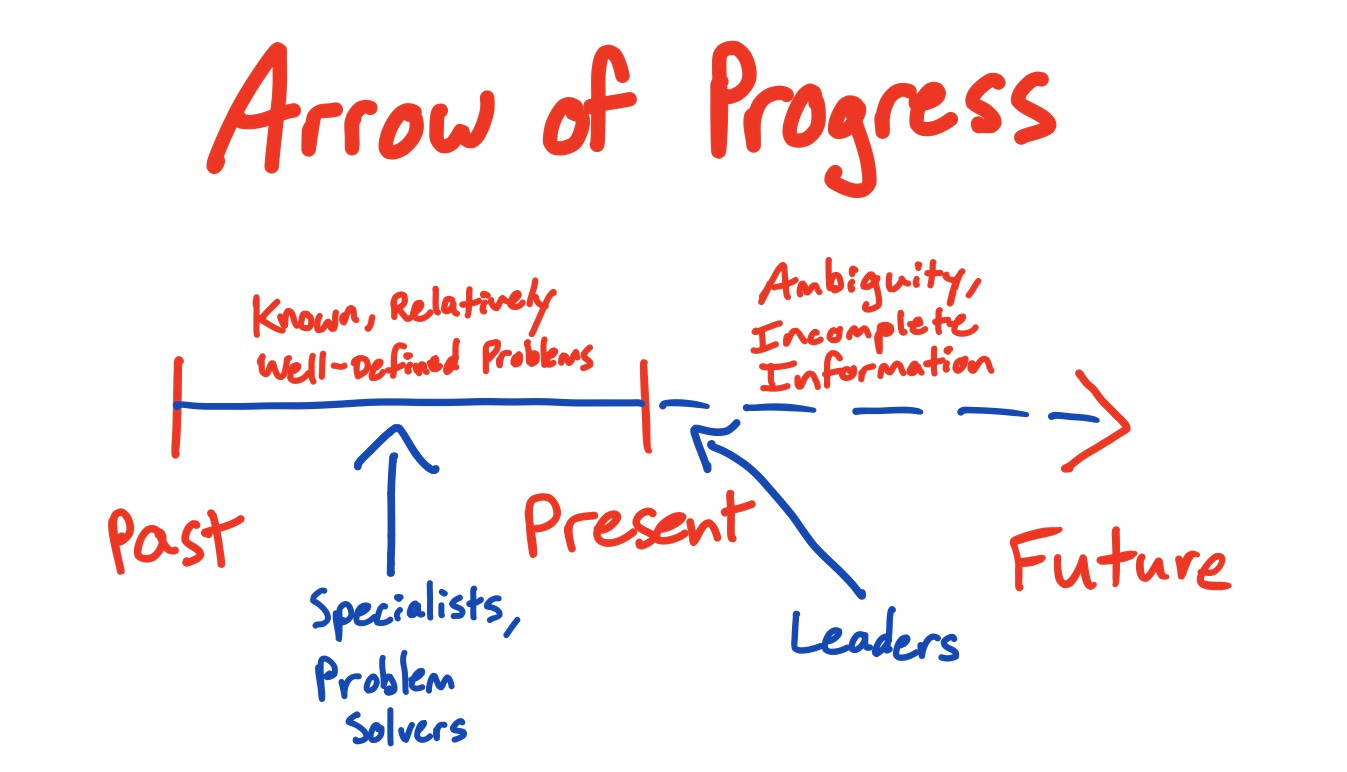Think Like A Leader
How to think like a leader and stop valuing short-term details over having a long-term vision.
Most people get paid to be technically correct.
You have a problem. Somebody else knows how to solve it. You pay them money to solve it. Badabing. Badaboom.
But leaders have a different job.
Leaders push groups of people forward in the face of uncertainty.
And the thing about people, especially groups of people, is that they’re just not that rational most of the time.
We are suckers for stories and emotion is often more appealing than “the data” or technical details.

And the thing about uncertainty is that it’s pretty hard to know any exactly right answers about an uncertain future.
This makes it both unproductive and nearly impossible for leaders to make technically correct claims most of the time.

So instead of trying to make technically correct claims...
How to think like a leader: make directionally correct claims about the future
To be effective, leaders often must make directionally correct claims that define a rough path forward and motivate people to action.
Leaders share compelling reasons why a group exists and get people all riled up to go out there and achieve the mission, even if some important details aren't clear yet.
Think of the classic JFK quote:
"Let every nation know, whether it wishes us well or ill, that we shall pay any price, bear any burden, meet any hardship, support any friend, oppose any foe, to assure the survival and success of liberty.”
America obviously can’t pay “any” price, support every single person who wishes us well, or oppose every single hater.
But, who cares?
Imagine if he had instead spoken in terms that are technically correct:


"Let every nation with a sizable airforce and / or navy know, whether its foreign policy towards the U.S. is helpful or harmful, that we shall take out loans up to $3.7 trillion, commit up to 1.29 million soldiers, engage in conflicts lasting 10 years or less, offer financial support to allies who have signed treaties with us, impose tariffs and sanctions on nations who have not, to ensure that America’s values and power are either maintained or expanded slightly.” John F. Kennedy
Being technically correct is uninspiring and uninteresting. Leaders paint exciting long-term visions that will guide shorter-actions and details in due time.
Why this matters for generalists
Generalists often are leaders, so it’s helpful to know when to think and communicate like one.
While we still may need to spend most of our day offering technically correct solutions to specific problems, it’s not a gear we should let ourselves get stuck in...
When we need to motivate people to move forward into the unknown, it can be far more helpful to damn the details and think like a leader.
Question for us
Is there a situation we’ll encounter today where we’ll be tempted to make technically correct claims, but being directionally correct might be more productive?
Thank you to Dan Hunt and Anthony Landreth for early feedback on this draft. And thank you to Loserthink for the inspiration for this mental model.

